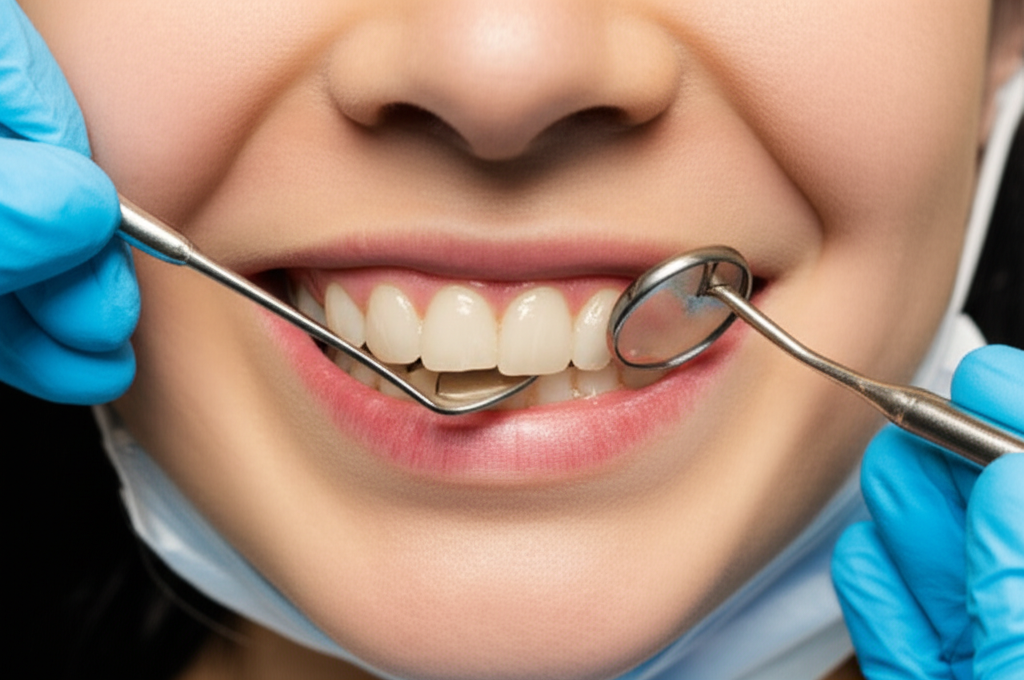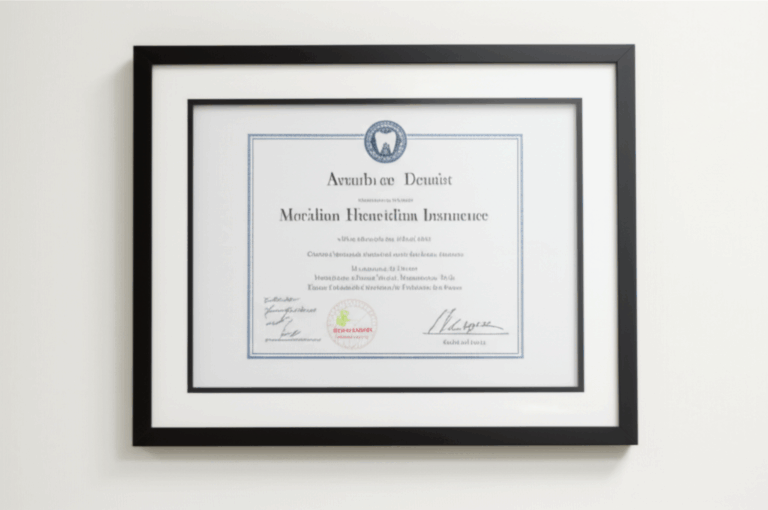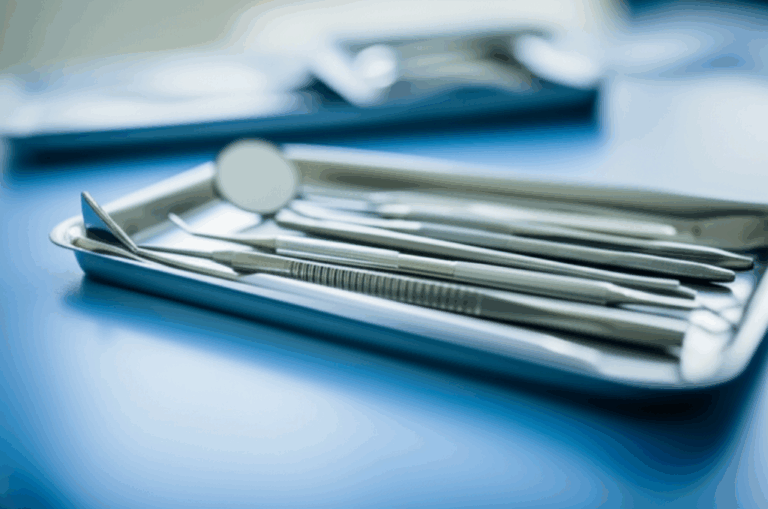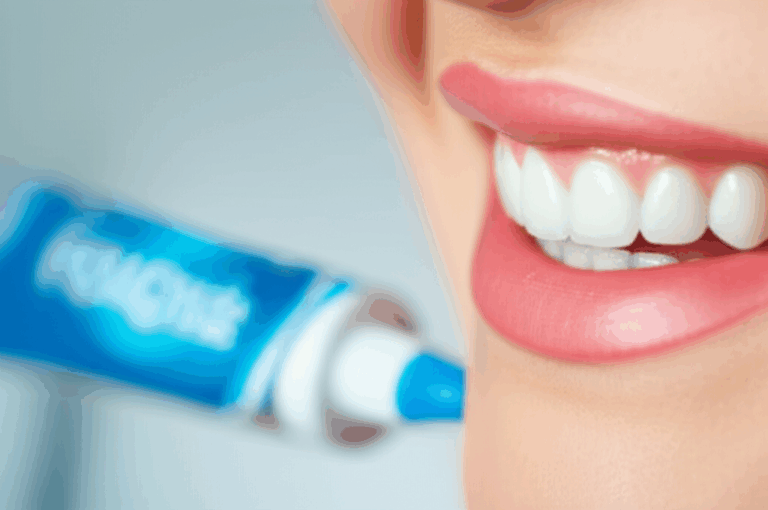
Is a Dentist an MD? The Truth Behind Titles, Training, and Who Counts as a “Doctor”
Have you ever sat in the dentist’s chair and wondered, “Is my dentist actually a doctor like my regular family doctor?” Maybe someone has said, “Dentists aren’t real doctors!” Or maybe you’re just curious about what kind of schooling and skills your dentist has. You are definitely not alone—many people get confused about this and hear a lot of mixed things.
Let’s make this simple and clear. By the end, you’ll understand what makes someone a “doctor,” why your dentist uses that title, and how dentists and medical doctors train and work. This is perfect if you’re thinking about a healthcare career, choosing a care provider, or just like understanding how things work.
In This Article
- Direct Answer: Is a Dentist an MD?
- The Degrees Dentists Hold: DDS vs. DMD
- MD vs. DDS/DMD: What’s the Real Difference?
- Comparing Dental and Medical Education
- Why Dentists Are Called “Doctor”: Untangling the Title
- When Does a Dentist Actually Hold an MD? (Special Cases)
- Clearing Up Common Misunderstandings
- Comparing Professions: Education, Expertise, and Scope
- Who Should You See—and When?
- Empowering Your Next Steps (Takeaway & FAQ)
Direct Answer: Is a Dentist an MD?
Let’s not waste your time. Here’s the quick answer:
No, your dentist is not an MD.
A dentist is a doctor, but not a medical doctor. They finish a school program that gives them either a DDS (Doctor of Dental Surgery) or DMD (Doctor of Medicine in Dentistry/Dental Medicine) degree. These look a lot like MD, but they are not the same as the Doctor of Medicine (MD) that regular doctors have.
But that’s not the whole story. Dentists are well-trained health workers and are super important for your health. They just follow a different school path, focus on a special part of your body, and have a different—but just as important—job.
The Degrees Dentists Hold: DDS vs. DMD
Here’s where people get mixed up: every dentist has a doctorate, but not the kind you might expect if you’re used to seeing “MD” on your doctor’s name tag.
What’s a DDS and What’s a DMD?
- DDS: Doctor of Dental Surgery. This is the most common degree that most U.S. dental schools give.
- DMD: Doctor of Medicine in Dentistry or Doctor of Dental Medicine. Schools like Harvard and the University of Pennsylvania give this degree.
But here’s the thing—DDS and DMD are actually the same in training, learning, and what they can do. The difference is just because each school uses their own translation from Latin. Both degrees need four tough years of dental school after college, usually with a focus on science classes.
All Dentists = Doctorates
Both degrees are doctor-level qualifications. That’s why your dentist is called “Dr. Smith” or “Dr. Lee”—they earned it!
MD vs. DDS/DMD: What’s the Real Difference?
Why do people compare these degrees anyway? It’s because of the word “doctor.” Lots of healthcare workers have doctorate degrees—but not everyone called “doctor” is a medical doctor for your whole body.
The MD (Medical Doctor) Path
- What is an MD? This is given to people who finish medical school after college, and they learn about the whole body: diseases, biology, treatments, and more.
- What they do: Internal medicine, surgery, kids’ health, mental health, and a lot more.
- Training: 4 years of medical school, then 3-7+ years of job training (called residency) and sometimes extra specialty training.
The DDS/DMD Path
- What do dentists focus on? Oral health—teeth, gums, jaw, and related parts like the face and head.
- Training: 4 years of college, 4 years of dental school. Some keep going to do 1-6 more years if they want to specialize, but most general dentists can start working after dental school and passing their license test.
Short version: Both paths are tough and need doctor-level skills, but they work on different parts of your health.
Comparing Dental and Medical Education
Let’s make this easier to picture.
A Tale of Two Schools
In Dental School, you’ll study:
- Details of the mouth, head, and neck—you’ll learn about nerves, blood vessels, and bones in ways most MDs do not.
- How to fix cavities, do crowns, bridges, implants, and braces.
- Surgery on mouths (yes, dentists do surgery—think pulling teeth or fixing gums).
- Medicines and diseases—focused on the mouth and teeth.
- How to spot mouth diseases and health problems that show up in the mouth.
Medical School is all about:
- The whole body—heart, brain, stomach, skin, lungs, and more.
- Hospital job training in medicine, surgery, children’s health, women’s health, and mental health.
- Learning how to spot and treat all kinds of health problems, from head to toe.
Getting a License
Both must pass a national exam (NBDE for dentists, USMLE for MDs) and get a license from the state.
Specialization
- Dentists can specialize (for example, orthodontists, gum doctors, oral surgeons) and may train for 2-6 more years.
- Doctors must do residencies for at least three years (sometimes up to seven or more).
Why Dentists Are Called “Doctor”: Untangling the Title
Let’s clear this up.
Yes, dentists are doctors. If you earn a doctorate degree, you are a doctor. It’s just not the same as the “medical doctor” title (MD) that regular doctors use. Dentists use DDS or DMD, depending on their school.
Why Does It Matter?
Calling your dentist “doctor” is more than just being polite—it shows they have a lot of schooling and special skills. Dentists check, fix, give medicine, and do surgery—but only for your mouth and jaw.
Mouth health is very important to your whole health, how you feel about yourself, and your happiness. Some mouth infections can even be dangerous for your life.
Are Dentists Physicians?
No, unless they have an MD (or DO) too. Dentists are experts of mouth and teeth, but not “physicians” who work on the whole body.
When Does a Dentist Actually Hold an MD? (Special Cases)
Here’s a rare exception you might not know.
Some oral and maxillofacial surgeons (OMFS) have both dental and medical degrees (DDS/DMD + MD). Why? Their specialty deals with very tough surgeries on the face, jaws, and mouth—many work in hospitals, right next to regular surgeons.
- These OMFS doctors go through both dental and medical school.
- They are trained to help with injuries, cancers, and big problems with the jaws and face.
Clearing Up Common Misunderstandings
Let’s answer some of the most common mix-ups:
1. “If My Dentist Isn’t an MD, Are They Not as Good?”
That’s not true. Dentists go through tough schooling and tests. Their doctorate just focuses really closely on the mouth and teeth.
2. “But I Call My Dentist Doctor—Why Does It Matter?”
You’re right! Both medical doctors and dentists are called “doctor.” The mix-up comes because lots of people in medicine and even in schools use the “doctor” title.
3. “Can Dentists Give Medicine?”
Yes, dentists can write prescriptions—but just for mouth and jaw problems (like infections or tooth pain). They can’t give you medicine for things like blood pressure.
4. “Are Dentists Healthcare Workers?”
Yes! Dentists are key healthcare professionals. They can even spot some big health problems—like diabetes or certain cancers—just by looking in your mouth.
5. “Will My Dentist Treat All My Medical Problems?”
No, that’s not their job. For health problems outside the mouth or jaw, your regular doctor or a medical specialist should help.
Comparing Professions: Education, Expertise, and Scope
To make this super clear, here’s a simple chart.
| Aspect | Dentist (DDS/DMD) | Physician (MD) |
|---|---|---|
| Degree | Doctor of Dental Surgery (DDS) or Doctor of Dental Medicine (DMD) | Doctor of Medicine (MD) |
| Years of School | 4 yrs college + 4 yrs dental school + optional 1-6 yrs specialty | 4 yrs college + 4 yrs med school + 3-7+ yrs job training (residency) |
| Area of Work | Teeth, gums, jaw, mouth, face parts | Whole body, all body systems |
| Surgery Training | Yes (mouth/jaw surgeries, some face work) | Yes (depends on specialty) |
| Licensing | NBDE + state clinical test | USMLE + residency |
| Can Prescribe | Yes, for mouth/head stuff | Yes, for all body issues |
| Specialties | Braces, root canals, gum disease, false teeth, etc. | Internal med, surgery, mental health, kids, and more |
Fun Fact: In the U.S., there are about 70 dental schools and over 6,000 new dentists each year. Medical schools are over 150, with more than 20,000 new MDs every year. (Sources: ADA & AAMC)
Who Should You See—and When?
Still wondering—should I see a dentist or a regular doctor?
Go to a Dentist When…
- You have tooth pain, sore or bleeding gums, sensitive teeth, or swelling in your mouth.
- You need a cleaning, check-up, X-rays, or want to keep your teeth healthy.
- You want repairs—like crowns, bridges, veneers, implants, or want your smile to look better.
- You’re thinking about braces, dentures, special mouth guards, or other mouth treatments.
- You see new sores, lumps, or color changes in your mouth.
For big repairs, your dentist might work with a special dental lab or china dental lab to make fake teeth, crowns, and mouthpieces just for you.
Go to a Physician (MD) When…
- You have symptoms all over your body (chest pain, fever, tiredness, rashes, trouble breathing).
- You need a regular check-up, shots, help with long-term illness, or advice for your health.
- You have health problems not linked to your mouth, like heart, lung, gut, brain, or mental health concerns.
When Do They Work Together?
It happens more than you think. Many health problems show up in your mouth first, like:
- Diabetes (which can cause gum disease and dry mouth)
- Immune system issues that change mouth health
- Some cancers, which can first appear as mouth sores or jaw swelling
That’s why your dentist asks about your health at every visit.
Empowering Your Next Steps (Takeaway & FAQ)
To wrap this up, here’s the key info to remember:
What You Need to Know
- Dentists are not MDs, but they are doctors—with a DDS or DMD after lots of hard schooling.
- Dentists are experts of mouth and jaw. Medical doctors are trained for your whole body.
- Some rare dental surgeons (mainly oral and maxillofacial surgeons) get both DDS/DMD and MD.
- Both jobs are important, respected, and work best together for your health.
Who Should Help with My Dental Concerns?
If you have tooth pain, missing teeth, want a better smile, or just need a check-up—see your dentist. For medical problems everywhere else—or if you’re not sure—see your family doctor.
For tricky repairs, your dentist may work with a digital dental lab or implant specialist to make sure you get the best and most accurate treatment.
Frequently Asked Questions: Clearing Up Any Doubt
1. Are dentists “real” doctors?
Yes—they are doctors in their special area of the mouth and teeth. They do not have an MD unless they do extra schooling (which is rare).
2. What’s the difference between DDS and DMD?
There is no real difference. Both are doctor-level dental degrees; the name depends on the school.
3. Can dentists find and treat diseases?
They check and treat disease in the mouth, jaw, teeth, gums, and related areas. For other health problems, they send you to a regular doctor.
4. Are dentists as well-educated as MDs?
Both do years of tough training, but it’s aimed at different things. You wouldn’t want your heart doctor doing your root canal—or your dentist doing heart surgery!
5. Can dentists give medicine?
Yes, for things in their area (teeth, dental pain, infections, and so on); not for illnesses in the rest of the body.
6. What if my dental problem affects my whole body?
Dentists know when a problem is bigger than just teeth or gums, and will work with your doctor if needed.
Your Healthy Takeaway—What’s Next?
- Know that your dentist is a doctor who has spent years learning about teeth and mouth health—which is super important for your full body health.
- See your dentist for anything with your mouth, teeth, or jaw; see an MD for anything else.
- Always ask your dentist questions about your mouth—your concerns matter.
- Remember: Healthy teeth and gums help your whole body, make you feel better, and save you from big problems later.
- Trust both professions. They are here to keep you healthy, happy, and pain-free.
If you’re still wondering, ask during your next dental visit—your dentist can explain more and you’ll probably leave with a bigger, more confident smile.
Sources and Further Reading:
- American Dental Association (ADA)
- American Medical Association (AMA)
- American Association of Oral and Maxillofacial Surgeons (AAOMS)
- Centers for Disease Control and Prevention (CDC)
For more info on dental care and tips, see our practical guide or check out our patient dental resources.
(Medically checked by [Your Expert’s Name], DDS/DMD/MD, for clarity and accuracy.)
Remember: Mouth care is a key part of total health. Knowing who to see and what skills they have sets you up for a healthier, happier future.








